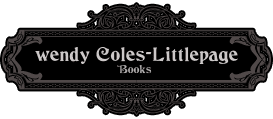There but not there: the Franco-Prussian War and the Phantom of the Opera
I began doing some on-line research into the Franco-Prussian War (1870-1871) somewhat by accident. While writing my book, ‘Disfigured‘, I was researching Paris and what it would have been like in 1870-1871, when my story takes place. Thus I discovered that this war, of incredible historic significance, was taking place right in the middle of my tale. Or perhaps I should say, my story was taking place right in the middle of the war. You see, my book involves the Phantom of the Opera story, and follows the events of the musical/movie in a way that is almost third-hand.
As anyone familiar with either the movie or the musical will know, there is absolutely no mention of this war (which the French preferred to call the War of 1870) anywhere in it. The only small clue of its existence is during the Masked Ball, when Raoul is seen wearing a dress uniform. Really, the war itself has nothing to do with the story, all of which for the most part takes place within the confines of the Opera House itself, or beneath it.
But when I began reading about the Franco-Prussian War and its aftermath, I realized that in my book, I could not ignore its impact on Paris and its citizens. It would certainly have had a very real impact on Sylvie Bessette, a cook and my heroine. For instance, the Prussians (Germans, as they were called after the war) held a very long blockade on the city of Paris, and no one could come in or out. It would be challenging to have access to fresh food to cook with. Perhaps the war would not have much impact on Erik, living in his insular world, and with the mysterious Persian there to get him the things he needs, by fair means or foul. But these were things that I took into account while writing, and I think it helps the book to have a sense of time and place.

My second book in the Disfigured Series, ‘About-Face’, takes place a little over two years later. France lost the war, and the effects of the war on the country and its people were huge – they lost the regions of Alsace and Lorraine to Germany, and were forced to pay a large sum of money to Germany.   After the war ended, it was also the end of the French Monarchy, and France became a Republic, which it still is. But I learned that there were factions trying to restore the Monarchy, and factions trying to keep it as a Republic. So the times were tumultuous. And in addition to all this, the people of France were so angry and resentful at the loss of those regions to Germany, an actual movement for Revenge developed. It was called Revanchism (literally, revenge-ism).  And at one point, France was at war with itself, killing its own citizens who were rebelling against the terms of the war and the Monarchy.
Esprit de revanche, characterized by a driving wish to reclaim the lost regions of Alsace and Lorraine ultimately led to World War I, but that is another story.
I decided I could turn all this volatility to good account in my next book. In ‘About-Face’, Erik’s brief involvement in the government’s efforts to put down any effort to return to a Monarchy acts as a springboard into the action that follows.
Listed here are a few websites I found about the Franco-Prussian War, for anyone interested in learning more about it. Until I did so, I had no idea how important it was in the grand history of things.
- Wikipedia: The Franco-Prussian War
- http://history-world.org/franco_prussian_war.htm
- Francoprussianwar.com
Also of dramatic interest is this brief but compelling Youtube video showing the progress of the Germans into France during the war. www.youtube.com/the Franco-Prussian War: Every Day.
